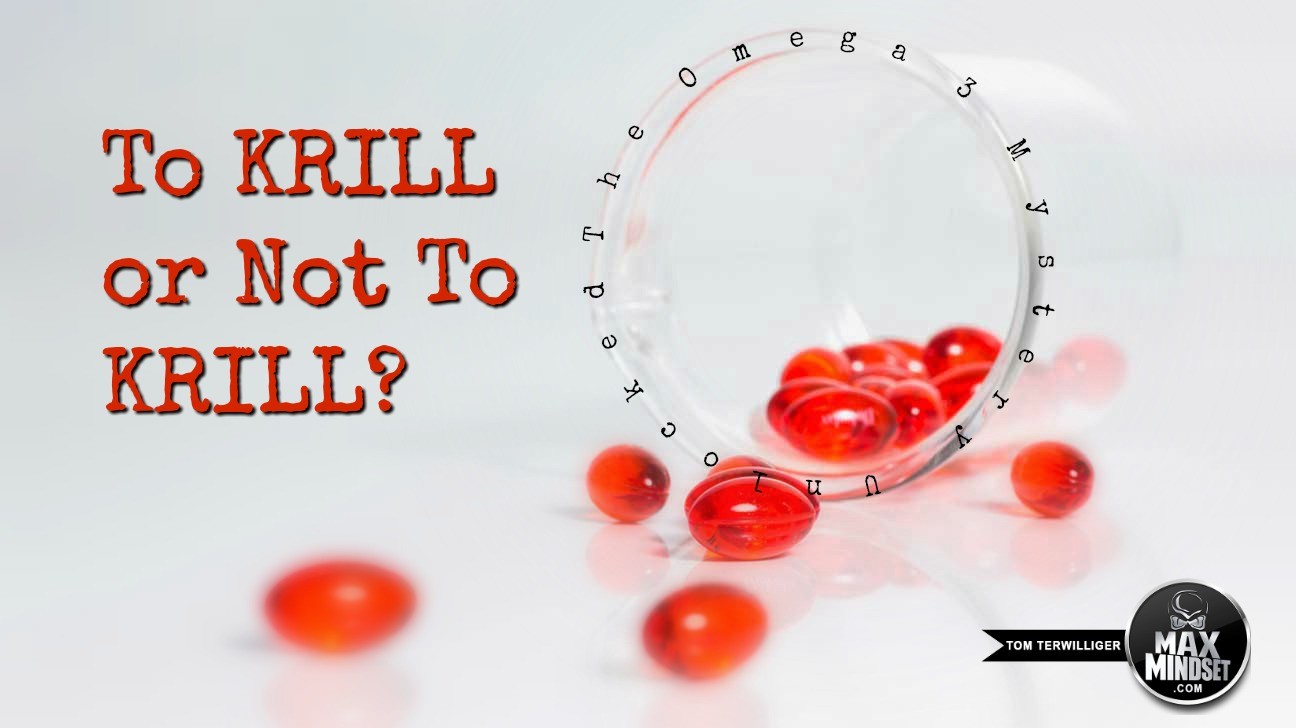I wanted to share some pertinent excerpts from this great piece by my friend, Dave Asprey over at Bulletproof about fish oil v Krill when it comes to getting the all important Omega 3 Fatty Acids so important to our health, energy and well being.
First let’s see where you stand with your Omega 3 intake. Take the survey then read the post.
Create your own user feedback survey
-
If you scored 90-100% you’re doing great – but there’s always room for improvement.
-
If you scored under 75% you need to work on getting more essential fats into your diet.
-
If you scored under 75% your way deficient in essential fats and probably experiencing some of the symptoms.
Omega-3 fatty acids like fish oil and krill oil are getting a lot of attention in the media as superfoods and healthy fats, and deservedly so.
EPA and DHA are necessary for proper functioning, particularly in your brain. DHA plays a very important role in your nervous system functioning, provides anti-inflammatory benefits, and is also associated with improved mood, insulin sensitivity, muscle growth, and better sleep.
And your body can actually turn EPA into DHA if your desaturase enzymes are working…
So which is better for you, krill oil or fish oil?
Taking adequate amounts, around 1 gram a day, of krill oil or a high quality fish oil, can do wonders for keeping your brain performing at its highest levels.
Why Krill Over Other Omega 3 Oils?
Krill oil is a superior source of EPA and DHA because the polyunsaturated fats are packaged as phospholipids, which can be used immediately by your body. The EPA and DHA in fish oil, on the other hand, are typically packaged as triglycerides and have to undergo additional processing in order to make them bioavailable. Krill oil is also more stable because it includes astaxanthin, a powerful antioxidant, that protects the fragile fats from oxidizing. I take extra astaxanthin every day!
Animal-based omega-3’s from krill and fish oils are both better sources than vegetable-based omega-3’s, such as the Alpha-linolenic Acid (ALA) in flax oil. Only about 1-4% of ALA is converted into DHA, so getting those higher potency sources from krill and fish is more efficient. Vegetable-based sources also contain oxidized inflammatory omega-6 fatty acids, which is another reason that they aren’t Bulletproof.
Taking too much EPA and DHA can be detrimental since they do cause blood thinning, they can suppress healthy levels of arachidonic acid (AA), and delicate fish oils can be inflammatory since they break down so easily in light or heat or air.
The reason why the phospholipid form found in krill oil is easier for the body to use is that the majority of every cell membrane in the body is made of phospholipids. Cell biologists talk about all the other components in cell membranes floating in a sea of phospholipids. Omega-3s phospholipids make cell membranes more fluid and flexible. Meanwhile, triglycerides are how lipids are stored for later use and transport in the body, such as in adipocytes (fat cells), so it takes more steps to get fish oil omega-3s into cell membranes where they’re needed the most.
Your Dose of Omega-3 Knowledge For The Day
Omega-3s are one of the most popular health-related search terms ever – for good reason! For an awesome explanation of the science behind healthy and high quality fats check out this science post on omega-3 versus omega-6 fats.
Taking adequate amounts, around 1 gram a day, of krill oil or a high quality fish oil, can do wonders for keeping your brain performing at its highest levels.
Take small quantities of the highest-quality source possible (whole wild salmon or krill oil or whole wild salmon oil) and you’ll be a happy camper.
Here’s one great source for Krill Oil. OmegaKrill 5X
I appreciate you’re feedback and replies. Feel free to share your thoughts.
TT
